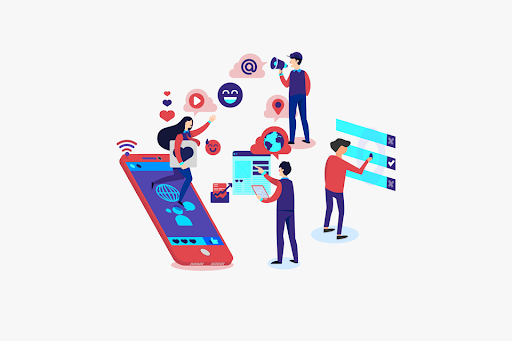After having a tough day at work, all you think of is scrolling through social media or watching your favorite show. Technology is today’s need, of course, but do you know how spending copious time on screen can affect your mental health? While being a source of information and entertainment, your screen time may negatively influence your mental health.
If you feel your overuse of devices is declining your mental well-being, seeking mental health services will be highly beneficial. In today’s guide, we will discuss the impacts of screen time on your mental health.
What Is Screen Time?
Screen time is an umbrella term to describe the time we spend in front of a screen. An average American child spends 3 hours a day watching Television. By combining all types of screen usage, the average time they spend on screen in one day ranges from 5 to 7 hours. While access to devices opens limitless opportunities for people to get knowledge, it also restricts them from participating in healthy pursuits, such as recreational visits, exercise, and social interaction.
Age-Related Effects of Screen time on Mental Health
When a child grows into adolescence, healthy interpersonal skills are extremely important. However, virtual interaction has replaced physical interaction, which does not participate enough in developing interpersonal skills. Moreover, the research says that spending 2 or 3 hours in front of screens causes increased risks of developmental delays in language acquisition in children. Moreover, bullying is another major concern where a child may get bullied through social media, which in turn, drastically impacts their mental health.
In adults, high physical activity is essential for their minds and body to work properly. Spending a big chunk of their time in front of their devices can disturb their physical and mental well-being. The NIH also shows that increased screen time can lower the psychological well-being of adults and can lead to depression, anxiety, social isolation, less curiosity, lower self-control, more distractibility, and less emotional stability.
Screen Time & Self-Esteem
Social media is one of the reasons people get screen addiction. Although social media is a great way to stay remotely connected to your loved one, it has detrimental impacts on your mental health. You may start comparing yourself to any influencer you have never met on social media. Their followers, their lifestyle, their personalities; a picture-perfect life on social media is not real, but it has the power to impact your mind and lower your self-esteem.
You may indulge in negative self-talk or start pointing out your body image issues and end up with an unsatisfied life. Social media has the power to shape your mind, and by excessively interacting with it, you are inviting it to drive your thoughts and actions.
Screen Time and Social Reward
Dopamine is a chemical in our brain that has a relation to motivation. Every time we taste delicious food, make a social interaction or get exercise, this chemical is released. It basically rewards us for our activities and motivates us to do them again.
These rewarding experiences are activated when we anticipate or experience rewarding events. Since positive social interactions and experiences release dopamine, these physical interactions are replaced by social media and other virtual platforms.
This means a text, email, like, or comment on social media has become a positive stimulus, escalating our cravings to get more.
This may seem normal on the bottom line, but it significantly impacts our lifestyle. These cravings for positive visual stimuli force us to use screens more and more to get as much appreciation and positive interactions as possible. Similarly, frequent negative stimuli can also impact our personality and mental well-being.

Screen Time & Sleep
Most people scroll through social media or binge-watch their favorite shows until the moment they sleep. Research suggests that these actions negatively affect your sleep duration as well as sleep quantity.
Insufficient sleep, both in duration and quantity, leads to myriad physical and mental issues. Lethargy, lack of concentration as well as increased risks of anxiety and depression results from unhealthy sleep patterns.
How to Avoid the Adverse Effects of Screen Time
If you feel your mental health is getting disrupted by the overuse of screens, turn every device off and walk away, Right? This seems a straightway and most effective solution to the problem, but it is easier said than done.
Staying away from technology is impossible today, but you can control your screen time in some ways, such as setting timers or using app timers that automatically turn after a specified time.
If you feel that your mental health has started declining, seeking psychological help is vital. If your negative thoughts start controlling your mind and you don’t do anything in this regard, this may damage your self-esteem and disturb your overall mental well-being.
